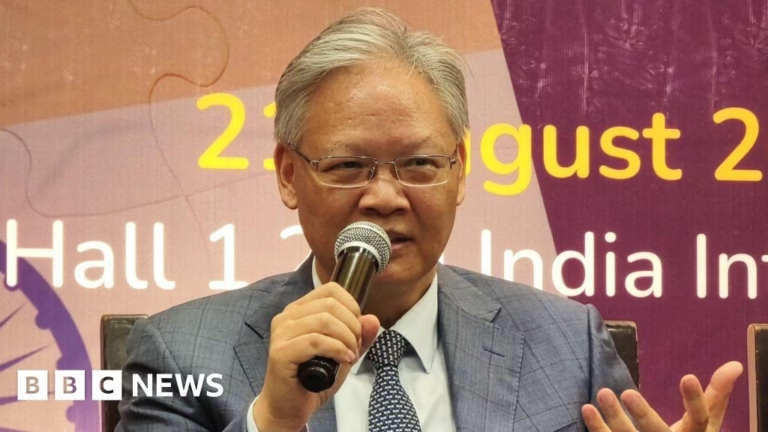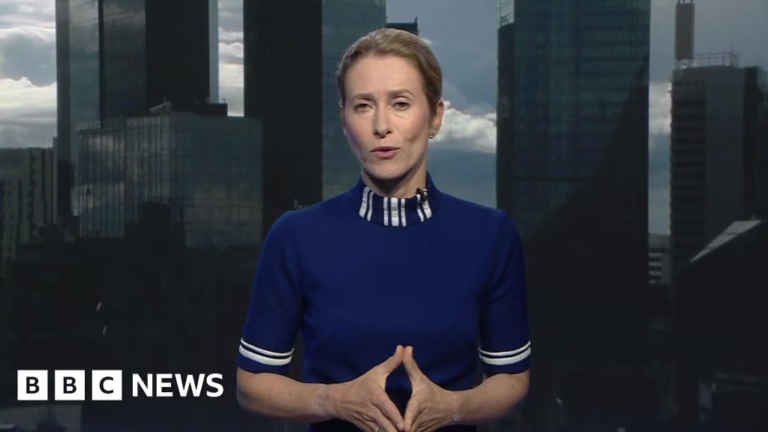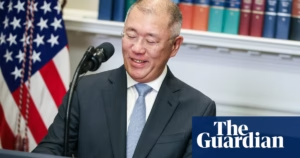The decision of when and where to employ American military might is one of the most sensitive and perilous that a US president can make.
Should this information be obtained by hostile entities in advance, it could jeopardize lives and threaten national foreign policy objectives.
Fortunately for the Trump administration, a Signal app group chat among senior national security officials discussing an upcoming US strike in Yemen did not fall into enemy hands.
Regrettably for the Trump administration, the message trail was observed by a notable political journalist, Jeffrey Goldberg.
Atlantique Magazine’s editor-in-chief Jeffrey Goldberg, in an article posted on Monday on the publication’s site, indicates he was inadvertently added to the chat by White House National Security Adviser, Michael Waltz.
Seemingly, the participants included JD Vance, John Ratcliffe, Susie Wiles, and Pete Hegseth, among others.
A spokesperson from the National Security Council told the BBC that the text message string “appears to be authentic”.
Goldberg asserts that the group debating policy and discussing operational details surrounding the impending military action provided an exceptional, almost real-time insight into the inner workings of Trump’s senior national security team.
“Excellent job,” Waltz texted to the group shortly after the US strikes against Houthi targets in Yemen on Saturday 15 March.
He followed up with emojis of a US flag, a fist, and fire. Other senior officials joined in the group’s congratulations.
These White House celebrations may prove fleeting, however, due to Monday’s revelations.
That an outsider could be inadvertently added to such sensitive national defense conversations signifies a colossal failure of operational security by the Trump administration.
And the fact that these conversations took place outside secure government channels exacerbates the issue, potentially violating the Espionage Act, which prescribes rules for handling classified information.
“This administration is playing fast and loose with our nation’s most sensitive info, and it makes all Americans less safe,” Senator Mark Warner, the ranking Democrat on the Senate Intelligence Committee, posted on X.
Democratic Congressman Chris Deluzio said in a press statement that the House Armed Services Committee, where he is a member, must perform an immediate thorough investigation and hearing on the matter.
“This is an outrageous national security breach, and heads should roll,” he said.
Criticism wasn’t limited to Democrats, either.
Don Bacon, a Republican Congressman from Nebraska, told the political website Axios that the administration’s action was “unconscionable”.
“None of this should have been sent on non-secure systems,” he said of Waltz’s messaging. “Russia and China are surely monitoring his unclassified phone.”
With Republicans controlling both the House of Representatives and the Senate, Trump’s own party would need to initiate any official Congressional investigation.
Speaker of the House Mike Johnson downplayed such a possibility, telling reporters that the White House has acknowledged its error.
“They’ll tighten up and make sure it doesn’t happen again,” he said. “I don’t know what else you can say about that.”
When questioned in the Oval Office about the Atlantic story, Trump feigned ignorance, saying that it was his first time hearing about it.
The White House then released a statement defending the President’s national security team, including Waltz.
Yet, by Monday evening, rumours in Washington had started to swirl about potential high-level resignations, with Waltz’s role in adding Goldberg to the group chat under scrutiny. The White House has not provided further comments on these growing speculations.
In its afternoon statement, the White House noted that the strikes were “highly successful and effective”.
JD Vance was the highest-ranking participant in the Signal text group that discussed detailed plans about the US military strike on Yemen.
While the Vice President has usually aligned with Trump in his public comments on foreign policy, in the private discussions, he expressed reservations about the military action, stating it could potentially exacerbate tensions in Europe and lead to a spike in oil prices.
“I am not sure the President is aware of how inconsistent this is with his current stance on Europe,” Vance warned. “There’s also a strong argument for delaying this, doing some messaging efforts on its importance, and assessing the economic situation.”
It’s not the first time a Vice President has disagreed with their President on foreign policy matters. Dick Cheney had disagreements with George W. Bush regarding the Iraq War, and Joe Biden had reservations about Barack Obama’s plan to eliminate Osama Bin Laden.
This isn’t the first time sensitive national security information has made headlines. Both Trump and Joe Biden faced inquiries for their post-leave office possession of classified information. Special Counsel Jack Smith even charged Trump for alleged violations related to not returning seizure evidence from his Mar-a-Lago residence – a case dropped when Trump secured re-election.
In 2016, Hillary Clinton’s use of a private email server for communication during her term as US Secretary of State became a campaign issue, as some of her messages containing classified information were released.
“You’ve got to be kidding me,” Trump commented during that campaign, criticizing Clinton for violating federal law.
On Monday, Clinton took to social media to post her reaction to the White House group chat revelations.
“You’ve got to be kidding me,” she retorted.
.png.webp)









